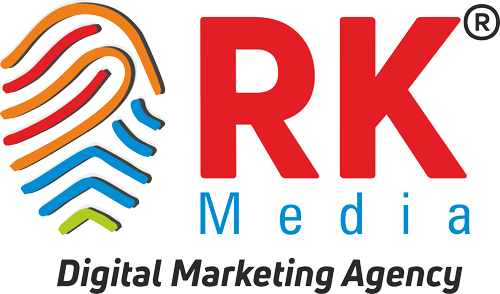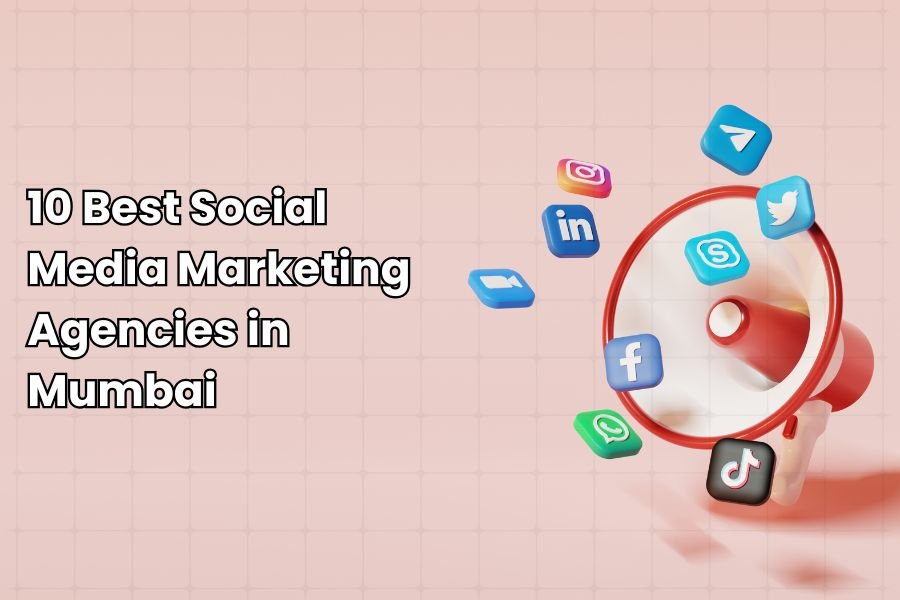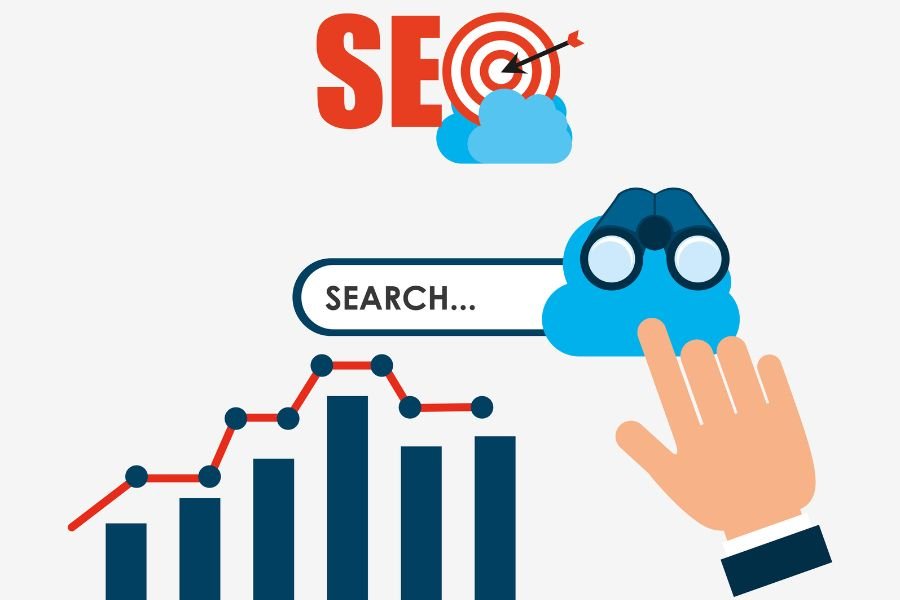Digital Marketing: The Game Changer for Financial Success
Introduction
The world of business has been undergoing a significant transformation in recent years, and one of the primary drivers of this change is the advent of digital marketing. In this introductory section, we will delve into the essential concepts of digital marketing as a game-changing tool for achieving financial success.
Definition of Financial Success
Financial success can be defined as the achievement of one’s financial goals, which may include accumulating wealth, achieving financial stability, and meeting both short-term and long-term financial objectives. It often involves increasing income, managing expenses, and making prudent financial decisions to secure a comfortable and prosperous future.
Significance of Digital Marketing
Digital marketing refers to the use of digital channels, platforms, and technologies to promote products or services, engage with target audiences, and drive business growth. In today’s digital age, it has become a critical tool for businesses to connect with potential customers, enhance their online presence, and build brand recognition. The significance of digital marketing lies in its ability to reach a wide and diverse audience, measure and analyze marketing efforts, and adapt strategies in real-time for more effective outcomes.
Overview of the Role of Digital Marketing in Achieving Financial Success
Digital marketing has emerged as a game-changer in the pursuit of financial success for individuals, businesses, and organizations. It plays a pivotal role in several key aspects that contribute to financial success:
1. Enhanced Visibility and Reach: Digital marketing provides businesses with the means to extend their reach beyond geographical boundaries. By creating an online presence through websites, social media, and other digital platforms, businesses can attract a global audience, thereby expanding their customer base.
2. Cost-Effective Advertising: Traditional advertising methods can be expensive, making it difficult for small businesses and startups to compete. Digital marketing offers cost-effective advertising options like pay-per-click (PPC) advertising, email marketing, and content marketing. This affordability allows businesses to allocate their resources more efficiently and maximize their return on investment.
3. Targeted Marketing: Digital marketing enables businesses to tailor their marketing strategies to specific demographics, interests, and behaviors. Through techniques such as search engine optimization (SEO), social media targeting, and data analytics, businesses can pinpoint their ideal customers, resulting in higher conversion rates and increased revenue.
4. Measurable Results: One of the most significant advantages of digital marketing is its ability to track and measure the success of campaigns. Tools like Google Analytics provide insights into website traffic, conversion rates, and customer behavior. This data empowers businesses to refine their strategies, optimizing for better financial outcomes.
5. Improved Customer Engagement: Digital marketing platforms facilitate two-way communication between businesses and their customers. Engaging with customers through social media, email, and other digital channels fosters trust and loyalty, leading to repeat business and referrals.
6. E-commerce and Online Sales: The rise of e-commerce and online sales platforms allows businesses to generate revenue 24/7, providing a continuous income stream. With digital marketing, companies can showcase their products and services online, attract customers, and drive sales, contributing significantly to financial success.
7. Competitive Edge: In today’s digital landscape, businesses that do not embrace digital marketing risk falling behind their competitors. By adopting effective digital marketing strategies, companies can stay competitive and gain an edge in their industry, which is crucial for long-term financial success.
In summary, digital marketing has evolved into a critical tool for achieving financial success. It empowers individuals and businesses to expand their reach, control costs, target their audience effectively, measure results, engage with customers, drive online sales, and maintain a competitive advantage. Understanding and harnessing the power of digital marketing is essential for anyone looking to thrive in the modern financial landscape.
The Foundations of Digital Marketing
Understanding Digital Marketing
Digital marketing is a broad term that encompasses all marketing efforts that use an electronic device or the internet. It’s the promotion of products or services using various digital channels and technologies to connect with customers where they spend much of their time: online. Understanding digital marketing is crucial for leveraging its potential for financial success. Here are some key concepts:
1. Online Presence: Digital marketing operates primarily in the online realm. It includes websites, social media platforms, search engines, email, and more.
2. Target Audience: Identifying and understanding your target audience is essential. You need to know who your potential customers are, what their preferences are, and where they spend their time online.
3. Data Analytics: Digital marketing relies heavily on data analysis. Tools and platforms track user behavior, engagement, and conversion rates, enabling marketers to make data-driven decisions.
4. Content: Creating valuable and engaging content is a core aspect of digital marketing. Content can be in various forms, including blog posts, videos, infographics, and more.
Key Components of Digital Marketing
Digital marketing is a multifaceted field, and it comprises various components. Here are the key components that are crucial for achieving financial success:
1. Search Engine Optimization (SEO): SEO involves optimizing your online content so that it appears higher in search engine results pages (SERPs) like Google. By using relevant keywords, meta tags, and other SEO techniques, you can drive organic (non-paid) traffic to your website.
2. Social Media Marketing: Social media platforms (e.g., Facebook, Twitter, Instagram) are powerful tools for building brand awareness, engaging with your audience, and driving traffic to your website. You can create targeted ads and posts to reach specific demographics.
3. Content Marketing: Content marketing is all about creating and distributing valuable, relevant content to attract and engage a clearly defined audience. Content can include blog posts, articles, videos, infographics, and more.
4. Email Marketing: Email marketing involves sending targeted emails to your subscribers. It’s a cost-effective way to nurture leads, build relationships, and promote products or services.
5. Paid Advertising: Paid advertising involves running ads on various platforms, such as Google Ads, Facebook Ads, and other ad networks. You pay for each click (Pay-Per-Click or PPC) or impression to reach a specific audience.
Importance of a Strong Online Presence
Having a strong online presence is vital for financial success in the digital age. Here’s why:
1. Global Reach: The internet enables businesses to reach a global audience. You can connect with potential customers worldwide, expanding your market and revenue potential.
2. Customer Engagement: Digital marketing allows you to engage with your audience in real-time. Through social media, email, and other channels, you can build relationships, address concerns, and gather valuable feedback.
3. Cost-Effective: Compared to traditional marketing methods, digital marketing is often more cost-effective. You can set budgets and target specific demographics, reducing wasted ad spend.
4. Measurable Results: Digital marketing provides detailed analytics, allowing you to track the performance of your campaigns. You can measure ROI and make data-driven decisions for optimization.
5. Competitive Advantage: Having a strong online presence can give you a competitive edge. If your competitors are not effectively utilizing digital marketing, you can capture a larger share of the market.
Leveraging Digital Marketing for Financial Success
In this section, we will explore how digital marketing can be a transformative force in achieving financial success. Digital marketing encompasses a range of online strategies and tactics to promote products, services, or brands. When harnessed effectively, it can significantly impact a company’s bottom line. Let’s dive into the key components of leveraging digital marketing for financial success:
Building a Brand Online
1. Creating a Unique Brand Identity: Building a brand identity is one of the fundamental aspects of digital marketing. Your brand identity is a combination of visual elements, such as logos, color schemes, and typography, as well as your brand’s personality and values. To create a unique brand identity, you should:
- Define your brand’s mission, vision, and values.
- Design a memorable logo and select brand colors that resonate with your target audience.
- Craft a brand voice and personality that aligns with your brand’s values and resonates with your audience.
- Ensure consistency in branding across all online platforms, from your website and social media profiles to email communications.
When you establish a distinct brand identity, it not only helps in brand recognition but also sets your business apart from competitors, fostering trust and loyalty among your customers.
2. Online Reputation Management: Maintaining a positive online reputation is crucial for financial success. Consumers often turn to online sources, including review websites and social media, to gauge the reputation of a business. To effectively manage your online reputation, follow these steps:
- Monitor online mentions: Regularly monitor social media platforms, review sites, and search engine results to stay informed about what people are saying about your brand.
- Respond to feedback: Address both positive and negative feedback promptly and professionally. This demonstrates that you value your customers’ opinions and are committed to improving.
- Encourage reviews: Encourage satisfied customers to leave positive reviews and ratings, as these can boost your online reputation.
- Utilize online reputation management tools: Consider using tools and services that can help you track and manage your online reputation efficiently.
A strong online reputation not only influences customer trust but also affects your search engine rankings and overall brand perception.
Targeted Marketing Strategies
1. Identifying and Understanding Your Target Audience: A key element of digital marketing is understanding your audience. To create successful marketing strategies, you must identify and comprehend your target audience. Here’s how to do it:
- Market research: Conduct thorough market research to segment your audience based on demographics, interests, behaviors, and other relevant factors.
- Create buyer personas: Develop detailed profiles of your ideal customers. This helps in understanding their needs, pain points, and preferences.
- Analyze data: Utilize tools like Google Analytics and social media insights to gather data about your website visitors and social media followers.
By identifying your target audience, you can tailor your marketing efforts to resonate with their specific needs and preferences, increasing the effectiveness of your campaigns.
2. Customizing Content and Campaigns: Once you have a clear understanding of your target audience, you can customize your content and marketing campaigns accordingly. Customization involves:
- Personalized content: Create content that speaks directly to the needs and interests of different audience segments. Tailor your messaging, imagery, and offers to resonate with each group.
- Multi-channel marketing: Utilize various online channels such as social media, email marketing, content marketing, and search engine optimization to reach your audience where they are most active.
- A/B testing: Experiment with different campaign elements to identify what works best with each audience segment. This can help refine your strategies over time.
Increasing Customer Engagement
Customer engagement is a crucial aspect of digital marketing. Engaging your audience effectively can lead to increased brand visibility, customer loyalty, and ultimately, financial success. Here are two essential components of customer engagement in digital marketing:
1. Social Media Engagement: Social media platforms have become integral to digital marketing strategies. They offer a direct and interactive way to connect with your audience. To increase customer engagement through social media, you can consider these strategies:
- Content Strategy: Develop a content plan that is relevant, valuable, and engaging for your target audience. This may include informative articles, entertaining videos, engaging graphics, and interactive polls or quizzes.
- Consistent Posting: Maintain a regular posting schedule to keep your audience informed and interested. The frequency of posts will depend on the platform and your audience’s preferences.
- Interactivity: Respond to comments, messages, and user-generated content promptly. Encourage discussions, run contests, and involve your audience in conversations related to your industry or product.
- Paid Advertising: Consider using paid social media advertising to reach a wider audience and engage with potential customers who may not be following your brand yet.
- Analytics: Use social media analytics tools to measure the success of your social media efforts. Track metrics like reach, engagement rate, click-through rate, and conversion rate to evaluate the impact of your social media campaigns on your financial goals.
2. Email Marketing Automation: Email marketing is a valuable tool for nurturing leads, retaining customers, and increasing sales. With automation, you can streamline your email marketing efforts. Here’s how to leverage email marketing automation for customer engagement:
- Segmentation: Divide your email list into segments based on user behavior, preferences, or demographics. This allows you to send highly targeted and relevant content to different groups.
- Personalization: Use automation to personalize email content, including subject lines and product recommendations. Personalized emails tend to have higher open and click-through rates.
- Drip Campaigns: Set up automated drip campaigns to nurture leads over time. Send a series of emails to guide potential customers through the buying journey, providing them with valuable information at each stage.
- A/B Testing: Experiment with different email subject lines, content, and send times to determine what resonates most with your audience. A/B testing helps you refine your email marketing strategy.
- Analytics: Utilize email marketing analytics to track open rates, click-through rates, conversion rates, and other relevant metrics. This data will help you assess the impact of your email marketing efforts on your financial success.
Measuring and Analyzing ROI
Measuring and analyzing Return on Investment (ROI) is essential to determine the effectiveness of your digital marketing efforts. It allows you to allocate resources more efficiently and optimize your strategies. Here are two critical components of measuring and analyzing ROI in digital marketing:
1. Key Performance Indicators (KPIs): KPIs are specific metrics that help you gauge the success of your digital marketing campaigns. Some common KPIs in digital marketing include:
- Conversion Rate: The percentage of visitors who take a desired action, such as making a purchase or filling out a contact form.
- Click-Through Rate (CTR): The percentage of people who click on a link in an email or on an ad.
- Cost Per Click (CPC): The amount you pay for each click on a digital ad.
- Customer Acquisition Cost (CAC): The cost of acquiring a new customer through your marketing efforts.
- Customer Lifetime Value (CLV): The projected revenue from a customer over their entire relationship with your business.
- Return on Ad Spend (ROAS): The revenue generated for every dollar spent on advertising.
2. Tools and Analytics for Monitoring Success: To measure ROI effectively, you’ll need the right tools and analytics platforms. Here are some tools and resources to consider:
- Google Analytics: A comprehensive web analytics tool that provides data on website traffic, user behavior, and conversions. It’s essential for tracking the effectiveness of your digital marketing campaigns.
- Marketing Automation Platforms: Tools like HubSpot, Marketo, or Mailchimp offer insights into email marketing performance, lead generation, and customer engagement.
- Social Media Analytics Tools: Platforms like Facebook Insights, Twitter Analytics, and LinkedIn Analytics provide data on the performance of your social media campaigns.
- Ad Campaign Analytics: If you’re running paid advertising campaigns, platforms like Google Ads, Facebook Ads Manager, and LinkedIn Ads offer detailed insights into ad performance and ROI.
- Customer Relationship Management (CRM) Software: CRMs like Salesforce or HubSpot CRM help you track customer interactions and measure the impact of your marketing efforts on sales and customer retention.
- ROI Calculators: Some industries have specialized ROI calculators that can help you estimate the return on investment for specific marketing campaigns or strategies.
Success Stories: Case Studies
Highlighting Real-Life Examples of Businesses Achieving Financial Success Through Digital Marketing
In the context of your article or study, “Success Stories” or case studies play a crucial role in showcasing the practical applications and benefits of digital marketing in achieving financial success. This section is all about presenting real-life examples of businesses that have leveraged digital marketing to improve their financial standing. Let’s break down this section into its key components:
1. Selecting Case Studies: The first step is to identify specific businesses that have succeeded financially due to their digital marketing efforts. These businesses should serve as relevant and compelling examples for your readers. Consider a range of businesses from various industries to demonstrate the versatility of digital marketing.
2. Introduction of Each Case Study: For each selected case study, provide a brief introduction to the business. This should include essential details such as industry, size, and any challenges they faced before implementing digital marketing strategies.
3. Challenges Faced: Explain the specific challenges or issues that each business encountered before implementing digital marketing. This could include low online visibility, stagnant sales, or a decline in customer engagement.
Analyzing Strategies and Tactics Employed
In this part of your article or study, you’ll delve into a deeper analysis of the digital marketing strategies and tactics used in the case studies. This analysis should help readers understand the underlying principles and commonalities among the success stories:
1. Identify Commonalities: Look for common trends and practices that emerge across the case studies. Do they share similar strategies, such as a strong emphasis on content marketing, or do they utilize different approaches for different industries?
2. Effectiveness of Strategies: Evaluate the effectiveness of the strategies employed by the businesses. Discuss which strategies delivered the most significant impact on their financial success.
3. Adaptability: Consider how these strategies can be adapted to different businesses and industries. Highlight the flexibility of digital marketing and its potential for broad application.
4. Challenges and Risks: Don’t forget to discuss any challenges or risks associated with the strategies. Digital marketing isn’t without its pitfalls, and it’s important to acknowledge these potential obstacles.
5. Future Trends: Briefly touch on emerging trends in digital marketing that can further enhance financial success. The field is constantly evolving, so it’s important to consider what’s on the horizon.
Conclusion
In today’s fast-paced world, staying relevant and competitive demands a strong online presence. Digital Marketing empowers businesses to adapt swiftly to changing market dynamics, tailoring their strategies in real-time. The agility and precision it provides, combined with RK Media’s expertise, make it an indispensable asset for financial success. Digital Marketing stands as the undisputed game changer for achieving financial success in today’s dynamic business landscape.
The advent of online platforms and the strategies employed by experts like RK Media Digital Marketing Agency have revolutionized the way businesses connect with their audience. Leveraging the power of SEO, social media, content marketing, and data analytics, companies can reach a broader customer base, boost brand visibility, and enhance their bottom line. The effectiveness of these digital tools in driving sales, increasing ROI, and fostering customer loyalty cannot be overstated. As businesses embrace the digital era, partnering with agencies like RK Media is a pivotal step towards sustained financial prosperity.
Image Reference: Freepik
Disclaimer: All trademarks, logos, and brand names are the property of their respective owners. All company, product, and service names used in this website are for identification purposes only. Use of these names, trademarks, and brands does not imply endorsement.




















